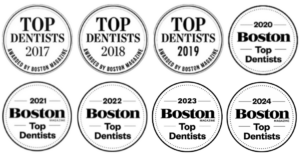Some of the Most Efficient Ways to Prevent Yellow Teeth
Healthy, appealing smiles are common amongst people with pearly white teeth. However, there are many who struggle with self-esteem because of their yellow teeth. The thing is, having yellow teeth can definitely be avoided if you know how.
If not, we’re here to discuss how to prevent them overall with some helpful tips below.
1. Brush Your Teeth at Least Twice a Day
One of the most vital parts of your mouth is your teeth; if you don’t brush them often, it can be difficult to keep them white and healthy. You can achieve having the pearly whites that you want by investing the required time in brushing it with high-quality toothpaste at least twice a day.
Most dentists even advise their patients to do so for at least two minutes. Use gentle bristles; avoid using rough ones, as they could harm the enamel on your teeth.
2. Avoid Consuming Drinks That May Stain Your Enamel
Red wine and coffee are just two of the beverages that might damage the enamel. They are able to stain it because of the acid in their composition. Besides that, tomatoes and citrus fruits are two examples of foods that also contain acids. Try to avoid drinking any of these beverages to get the whitest possible teeth.
Black Coffee
The biggest problem is the dark color, which causes the yellowing of the teeth. The coffee has a thick, creamy consistency and, as was previously indicated, contains hazardous acids. If you dislike drinking water, you can switch to black tea or green tea. You may even enhance your coffee with green tea because it contains less acid.
Fruit Juices
While some fruits are really good for you, they don’t do much to whiten your teeth. The enamel will become stained more quickly with those that contain natural acid than with other drinks. If you adore drinking fruit juices, as described in the previous statement, you will have to give them up.
Red Wine
Wine’s acidic composition is what causes it to discolor enamel. Red wine has more acid than other types of wine; therefore, drinking red wine will discolor your teeth and harm the enamel. There is no reason why you shouldn’t consume white wine because the majority of their known brands will have lower acid content than others.
3. Limit Your Consumption of Sugary Drinks and Sweets
Sweet foods like candy, cakes, cookies, fruit juices, etc., can yellow and darken your teeth. You might need to refrain from eating sweets for a few days if you want to whiten your teeth quickly.
4. Take Regular Visits to the Dentist
As part of their routine procedure, the dentist will check and clean your teeth after each appointment. You may be brushing and flossing your teeth frequently, but there may still be a slight film of germs that typically accumulate around your teeth. Be sure to discuss your routine with your dentist so they will know the right procedure to apply on your next visit.
5. Avoid Smoking and Drinking as Much as Possible
Cigarette smoking can definitely discolor and yellow your teeth. Excessive alcohol consumption may also cause your teeth to become stained and eventually yellow.
It may even cause bad breath, which is why regular smokers and drinkers should think twice about brushing their teeth the right away.
6. Remember to Replace Your Toothbrush after Frequent Use
You should swap out your toothbrush every three months if you want to have whiter teeth. The bristles on your toothbrush will wear out and begin to deteriorate if you don’t do this. Additionally, bacteria from your toothbrush can enter your mouth and cause bad breath and yellowing of the teeth.
Conclusion
Understanding the underlying reason for yellow teeth is necessary before you can even whiten them effectively. Have you been drinking too much black coffee? Do you frequently smoke? Finding the source of the issue will make it much easier for you to address it overall.
That said, why not deal with a qualified dentist? Depending on the degree of tooth discoloration, the dentist will carefully examine your teeth and recommend a course of action. They’ll even offer to whiten your teeth through a procedure and provide you with advice on how to keep them that way.
If you are looking for an institution that offers cosmetic dentistry in Lexington, look no further than our expertise here at Lexington Smile Studio. Our dental services include cosmetic dentistry, prosthodontics, implant dentistry, periodontics, and laser dentistry. Call us today to book your very first dental cleaning session with us.



